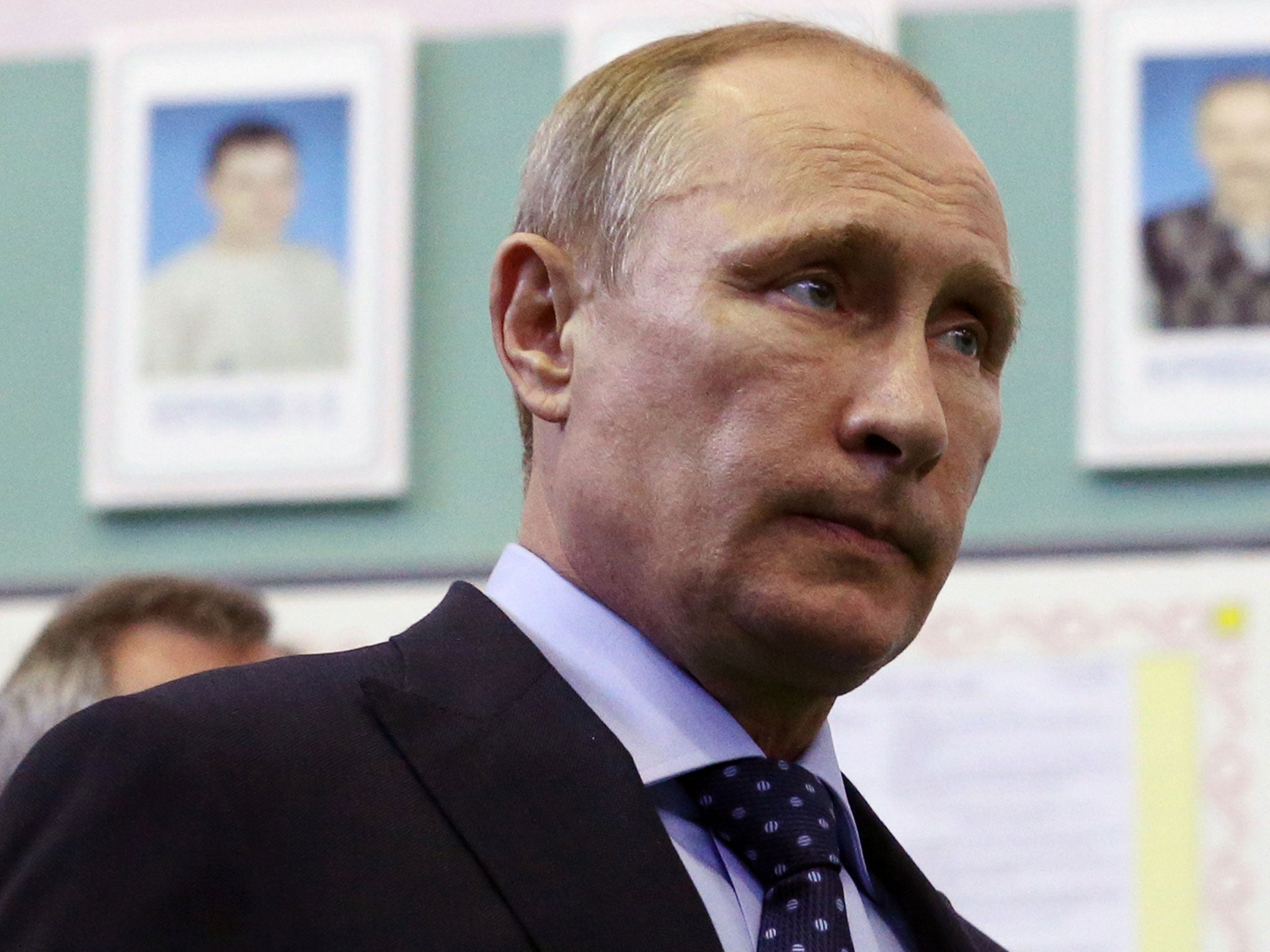Malaysia Airlines MH17 crash: France and Germany accused of going soft on Putin as sanctions talks stall
Countries reliant on Russian trade ‘putting money before morality’ after MH17 crash

American and British attempts to persuade other European leaders to impose a package of tough new EU sanctions on Russia appeared to have stalled this evening.
Senior French and German diplomatic sources indicated that they were unlikely to back British proposals for new wide-ranging restrictions on key Russian energy, finance and defence firms.
Privately, senior British government sources admit that resistance from other European capitals means it is unlikely that new sanctions will be agreed at a meeting of foreign ministers in Brussels tomorrow, although they stress that the situation is “fluid”.
An agreement was reached on Monday night at the UN Security Council when Russia joined other nations in voting for an independent investigation into the Malaysia Airlines disaster and an end to military activity in eastern Ukraine, after a sometimes emotional session in New York.
The Russians faced harsh criticism however for their handling of the separatists. But the promise by rebels to belatedly hand over to Malaysian authorities the black boxes from the destroyed flight MH17, as well as the start today of the repatriation process of those killed on the plane, has strengthened the hand of those arguing that further sanctions could hamper future Russian co-operation.
Much, British officials say, will depend on the position of the Dutch, who lost 193 citizens in the crash, and whether they calculate that the imposition or threat of further sanctions will help or hinder the investigation into the attack.
The Dutch Prime Minister, Mark Rutte, said today that “all political, economic and financial options” were on the table if access did not improve to the area in eastern Ukraine where the Malaysian airliner went down, killing all 298 people on board.
In a statement to the House of Commons David Cameron made plain his frustration with other European leaders, including the French President, François Hollande, and the German Chancellor, Angela Merkel, for being too cautious in imposing wide-ranging trade bans.
Singling out France he suggested that Mr Hollande should suspend the delivery of two Mistral warships that are due to be handed over to Russia in October.
“We would not sell further arms to Russia [and] we believe other European countries should be doing the same.
“Frankly, in this country it would be unthinkable to fulfil an order like the one outstanding that the French have.”
But Mr Cameron said “for too long” there had been reluctance on the part of “too many European countries” to face up to “implications of what is happening in eastern Ukraine”.
Raising the spectre of the Second World War, Mr Cameron added that Europe should need no reminding of the “consequences of turning a blind eye when big countries bully smaller countries”.
“We should not shrink from standing up for the principles that govern conduct between independent nations in Europe – and which ultimately keep the peace on our continent,” he said. “It is time to make our power, influence and resources felt.”
Among the sanctions for which the UK is understood to be pushing are measures against the Russian airline Aeroflot, which last month launched a low-cost subsidiary Dobrolyot whose maiden flight connected Moscow with the recently annexed Crimea.
Diplomatic sources said on Monday night that negotiations on an EU response were “still very fluid” ahead of the talks but that the most likely outcome was a speeding up in the process of naming individuals and companies banned from doing business in Europe because of their direct involvement in Crimea and eastern Ukraine.
There could also be a renewed threat of so-called Tier 3 sanctions targeted at sectors of the Russian economy such as finance, oil and gas or defence.
But Britain is far more hawkish than Paris and Berlin, which fear that the immediate imposition of further sanctions could be counter-productive. They worry that it could hamper Russian co-operation into the crash investigation as well as making it harder domestically for President Putin to withdraw support from Ukrainian separatists.
“Sanctions are a means to achieve a goal but are not a goal themselves,” said a German diplomatic source.
“They are really only useful if they continue to be a threat.”
French officials added that they expected the foreign ministers meeting would probably lead to renewed threats of stronger sanctions but will make few firm decisions.
Paris also does not want to be railroaded into a ban on military sales to Moscow that could force it to renege upon the Mistral deal.
But America is keen for Europe to take a much stronger line with Mr Putin – in part because 50 per cent of Russia’s trade is with the EU.
Speaking at the White House, President Barack Obama said Vladimir Putin had to “get serious” about quelling the hostilities in eastern Ukraine and to use his influence over separatists there to stop getting in the way of an international investigation of the downing of Flight MH17.
“The separatists are removing evidence from the crash site,” Mr Obama asserted, as well as impeding the access of investigators. “All of which begs the question: what exactly are they trying to hide?”
Mr Putin, he said, had “direct responsibility” to compel the separatists to get out of the way of international investigators, warning Moscow it will be penalised further if it doesn’t act. Mr Obama made no mention of any divisions between the US and Europe on how far those sanctions might be taken.
“If Russia continues to violate Ukraine’s sovereignty… then Russia will only further isolate itself from the international community and the cost of Russia’s behaviour will continue to increase,” the US President insisted.
Join our commenting forum
Join thought-provoking conversations, follow other Independent readers and see their replies
Comments
Bookmark popover
Removed from bookmarks